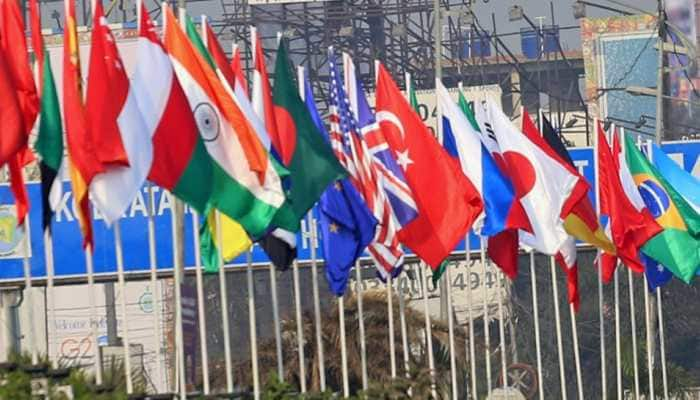Legal system marked by long delays, backlog of 3.3 crore cases throughout country: President Ram Nath Kovind
President Kovind said the reasons for delays include -- infrastructure gaps, considerable vacancies, particularly in subordinate courts, and the culture of seeking adjournments as a norm rather than an exception.
Trending Photos
)
President Ram Nath Kovind on Saturday lamented the legal system is marked by long delays and stated there is a backlog of 3.3 crore cases in various courts across the country, including 58,000 in the Supreme Court.
Addressing the National Conference organised by the Supreme Court Advocates on Record Association in the national capital, President Kovind said the reasons for delays include -- infrastructure gaps, considerable vacancies, particularly in subordinate courts, and the culture of seeking adjournments as a norm rather than an exception.
"Indian legal system is marked by long delays. There is a backlog of 3.3 crore cases in various courts of the country. Of these, 2.84 crore cases are in the subordinate courts. Another 43 lakh are in the High Courts and about 58,000 in the Supreme Court. There are many reasons for such delays. There are infrastructure gaps and considerable vacancies, particularly in subordinate courts. There is a culture of seeking adjournments as a norm rather than an exception. Judiciary is making efforts to curb this practice," said the President.
Commending the step taken by the government in cases of litigation, President Kovind said, "In the past, it has been observed that governments and government agencies themselves were parties to many cases of litigation. I must commend the government of India for making a sincere effort to reduce this number."
Kovind said, "Government has enhanced threshold for filing appeals in tax disputes in tribunals and courts. In Supreme Court, the threshold has gone up from Rs 25 lakh to Rs 1 crore. The government has also decided to withdraw many pending appeals. There has been a conscious rationalisation of tribunals. 36 identified tribunals have been merged to form 18 tribunals. This prevents overlapping of jurisdictions and provides greater clarity in ensuring early solutions and justice to aggrieved parties."
Speaking on the impact of technology on justice, Kovind said, "Technology can be a great enabler of justice. A start was made in 2016 with the opening of India’s first e-court in the High Court of Hyderabad. Since then, the idea of e-courts has spread elsewhere. Innovations such as evening courts and family courts, and the concerted effort made in the delivery of speedy, fast-track judgements in cases of sexual crimes against women, are also noteworthy."
"On the pathway of the government's Digital India initiative, the Legal Information Management and Briefing System (or LIMBS) has been introduced as an online mechanism to monitor and streamline court cases, and to reduce the government’s own litigation. LIMBS attempts to bring all stakeholders – from Ministries to advocates to claimants and others – on the same platform. This will check delays and financial costs. So far 2.6 lakh court cases have been placed on this platform," he added.
Stay informed on all the latest news, real-time breaking news updates, and follow all the important headlines in india news and world News on Zee News.
Live Tv







)
)
)
)
)
)
)
)
)
)
